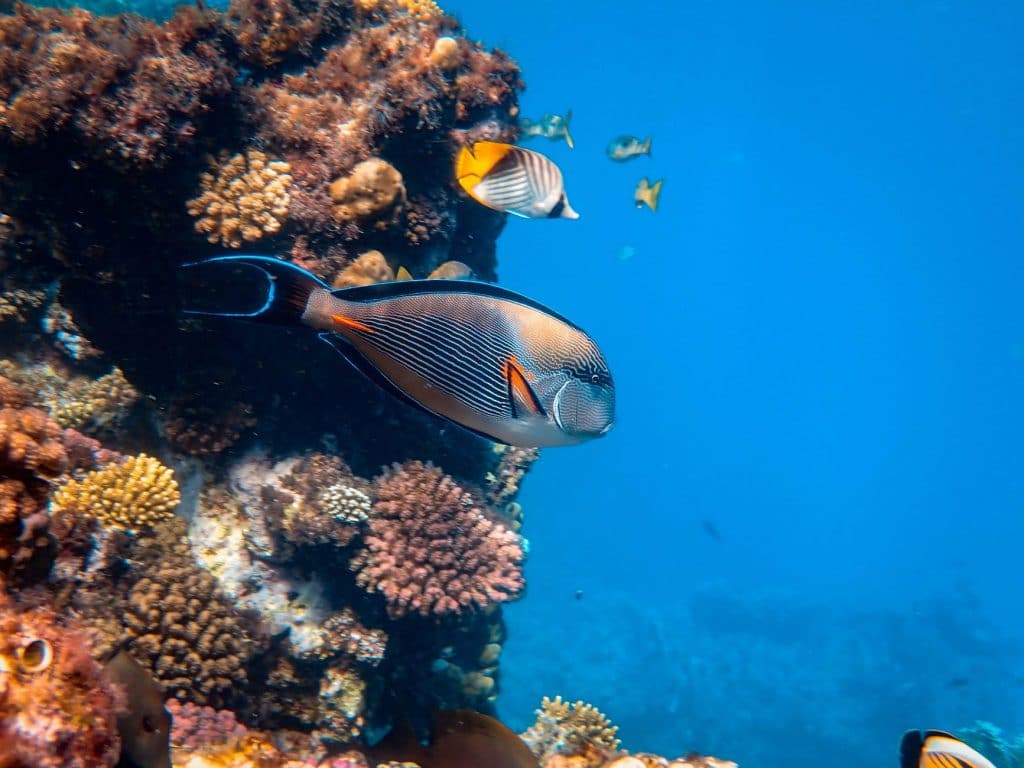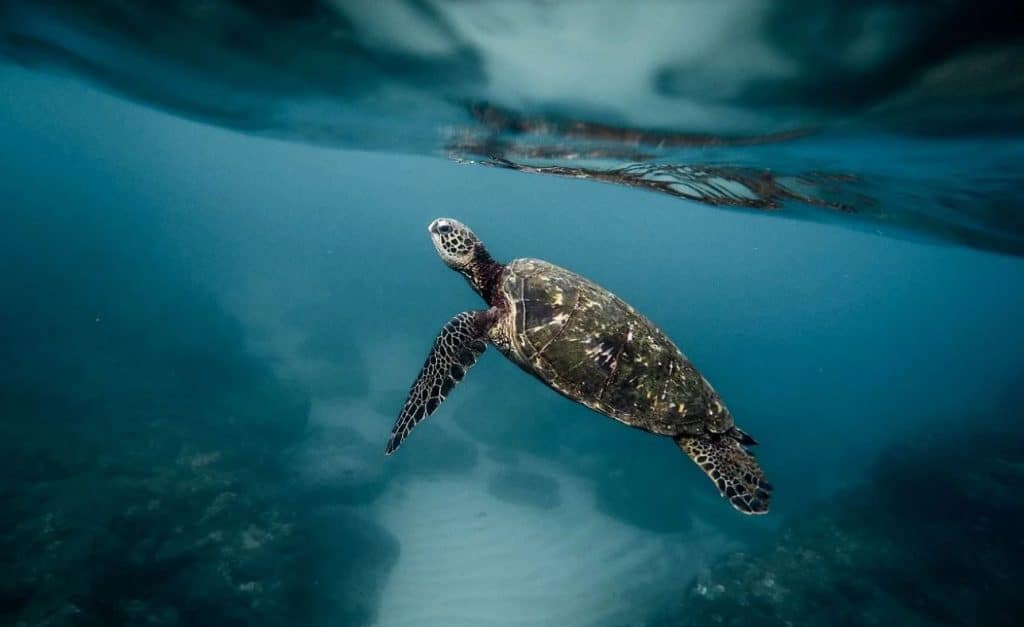
Want to see aquatic creatures in different colors, shapes, and sizes? Join us on our next liveaboard Philippines to see a variety of marine life up close. Check out these marine life encounter tips for a fun, safe, and responsible diving experience.
Do your homework
Find out about the possible creatures that you can come across at the dive site. Study their physical traits such as size, color, patterns, etc. This can make it easier for you to identify the animals that you see. It also helps to learn about their feeding habits, defense mechanisms, and other known behaviors.
No touching, please!

One of the first things to remember is not to touch marine life. Fascinating as they might seem, underwater animals are wild creatures. Touching fish, seahorses, rays, turtles, and other species can make them prone to stress or even injury.
You’re not in a petting zoo so resist the urge to touch aquatic animals that you encounter. By keeping your hands to yourself, you will also protect yourself from possible animal attacks. Some animals are equipped with natural defense mechanisms. Some creatures will not hesitate to defend themselves if they feel stressed or sense that they are in danger. So don’t let your curiosity get the best of you.
Keeping your hands to yourself can save you from a nasty bite or sting. Furthermore, it can increase your chances of having a better marine life interaction.
Do not chase marine creatures
It’s the natural instinct of most animals to run away when they are being chased. If an animal that you are observing swims away, do not follow it. Chasing the animal might give the wrong impression that you’re a predator out for a hunt. This can put the creature in a lot of stress and in some cases force it to defend itself.
Feeding is a no-no!
First of all, feeding marine animals is prohibited in many places. Aside from being against the law, hand-feeding aquatic life promotes a behavior called conditioning. This is when the animal learns to associate humans with food. As a result, it weakens their natural ability to hunt for their own meal. It can also make them more vulnerable to predators.
Introducing fish and other species to unnatural food may pose a serious health risk. The last thing you want to happen is to make an animal sick.
Keep off the bottom
Stingrays like to bury themselves in the sand. Accidentally stepping on one can result in a painful sting. Keep off the bottom to avoid stepping on a stingray and other fragile creatures. Remember to be mindful of your fin kicks to avoid disturbing marine animals, stirring up silt, and annoying other divers.
Choose a responsible liveaboard operator
Discovery Fleet Philippines cares about our oceans and marine life. We follow sustainable marine life interaction guidelines to promote a memorable, safe, and responsible marine life interaction. Book a trip with us and we’ll take you to the top dive sites Philippines.
